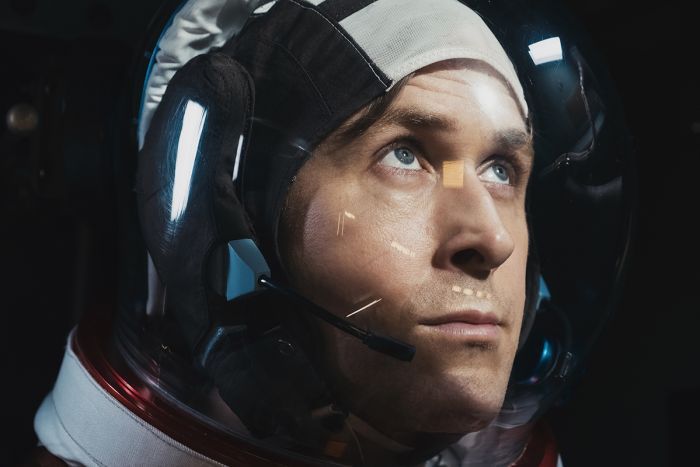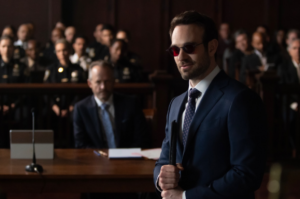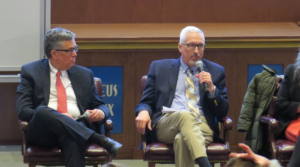Film Review; ‘First Man’ Armstrong’s Intense Path to the Moon

Ryan Gosling plays Neil Armstrong in First Man. Courtesy of abc.net.au
By Bridie Bryant
Director Damien Chazelle gives the world “First Man” which tells the extraordinary story of Neil Armstrong’s path to the moon.
On July 20, 1969, 500 million people watched 39-year-old Neil Armstrong walk on the moon and heard the iconic words, “That’s one small step for man, one giant leap for mankind.” In “First Man”, Chazelle shows Armstrong’s incredible and inspiring story that led him and the Apollo team to do the impossible.
Surprisingly, the film did not focus as much on the moon landing as most believe it should have. I myself was surprised at the short amount of time Chazelle focused on the mission. Chazelle builds the story through the trial and error that NASA and Armstrong experienced during the eight years leading up to the moon expedition. There were problems and doubts once Armstrong was chosen for the mission, and often there were failures with the equipment. One of these instances killed three astronauts when a fire broke out on the launch pad. Another issue was posed by the United States citizens and Congress’ skepticism of concerning the amount of funding the mission required.
Chazelle brings all of the flaws of the mission to the screen along with Armstrong’s personal struggle. He directed the film with suspense and unexpected surprises, which kept the audience engaged. While Chazelle showcases the tension and anxiety in a race against time, he also shows another side of Armstrong. The audience is given an intimate look into the life of a man who will be remembered for centuries.
Ryan Gosling portrays Armstrong in a way that many wouldn’t expect to see. Gosling does the role justice. At the start of the film, Gosling’s Armstrong is an average man dealing with the death of his young daughter. His portrayal of Armstrong was humble and quiet, exactly what it should have been.
Chazelle’s directing style is unique; he chooses to start the movie with Armstrong completing a test run of a pilot training exercise. This introduces a sense of anxiety and suspense to the audience even though they know the ending. Armstrong’s long journey to the moon proved to be challenging; he struggles to cope with his young daughter’s death and the tragic loss of his teammates in the launchpad fire. Chazelle’s direction created an intimate and tense atmosphere as Armstrong works to take care of his family while racing against time to complete his mission. Chazelle used archival footage from the 1960s to bring the audience into Armstrong’s world.
The film wasn’t an action-packed space mission like “Armageddon” and it wasn’t an abstract mind-bottling experience like “2001: Space Odyssey.” It was a film about doing the impossible when the odds are stacked against you. It was real.
The audience’s response to the film was silence. There was no cheerful applause in admiration of the film. Chazelle, the cast, and the camera told them all they needed to know. The film kept the tensions high from the overwhelming pilot training in the opening scene to the end when Armstrong returns to Earth.
After the film, senior politics major Alexa Abdelrazek said, “I was engaged, because it was personal and it wasn’t about America finishing the race. It was about his life and how he handled everything.”
If you are a fan of space films set in the 60s or if you like Ryan Gosling, this film might be worth your while. “First Man” hits theaters Oct. 12, 2018.
Cast: Ryan Gosling, Claire Foy, and Kyle Chandler
Directed by Damien Chazelle.








